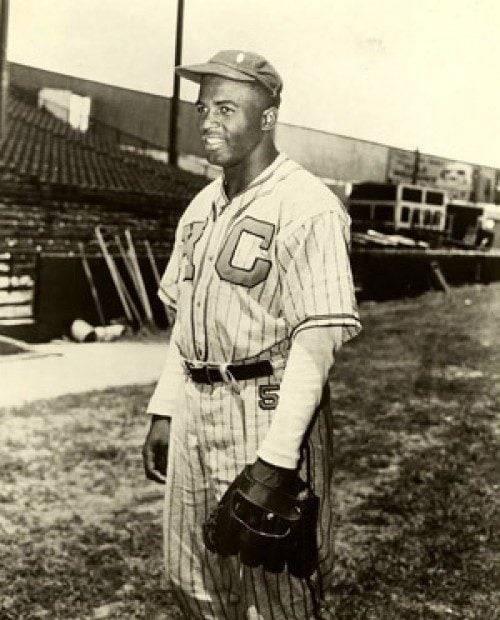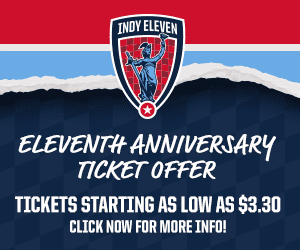Many of us have been told about how Jackie Robinson changed the face of professional sports forever when he became the first African-American to play in major league baseball in 1947.
“No athlete of the 21st century has impacted more lives,” said Larry Schwartz, a sports history analyst for ESPN. “Robinson lit the torch and passed it on to several generations of African-American athletes. While he didn’t make a nation color blind, he at least made it more color friendly.”
What often goes unmentioned, however, is the impact that Robinson’s role in integrating baseball had on Black baseball teams, known historically as the Negro Leagues.
During their height from the early 1920s to the mid-1940s, Negro League baseball teams were among the most successful enterprises in the African-American community.
They provided minorities an opportunity to enjoy one of America’s favorite pastimes and a venue to showcase talent for Black players who were forbidden to join white-owned major league teams.
Robinson, a UCLA athletic star and World War II veteran, began his career as a shortstop with the Kansas City Monarchs of the Negro League. In 1946, he was signed to play for the Montréal Royals, a division team of the Major League’s Brooklyn Dodgers.
At the time the Major League’s new commissioner, Happy Chandler, had encouraged white baseball executives to consider integrating their teams, saying, “If they (Blacks) can fight and die (for our country) in the South Pacific, they can play ball in America.”
Dodgers owner Branch Rickey was one of only 16 team owners at the time who shared that view, and boldly agreed to sign Robinson to the Dodgers in 1947, making him the first minority to play for a Major League baseball team.
Robinson was named Rookie of the Year and Most Valuable Player in 1949, and helped the Dodgers win six pennants during his 10 seasons with the team. His success opened the door for other African-American players to launch a career in the Major Leagues.
Robinson’s success and the doors he opened, however, came at great cost.
First, Robinson had to endure racist remarks, jokes and attacks during his first few years with the Dodgers. With the weight of the future of Black athletes on his shoulders, Robinson restrained himself from his instinct to fight back and possibly lose his historic position.
“He learned how to exercise self-control – to answer insults, violence and injustice with silence,” Schwartz said. “A model of unselfish team play, he earned the respect of his teammates and, eventually, the opposition.”
Another cost involved the impact of racial integration on the Negro Leagues. Now that Black players could join general Major League teams, would having Black leagues still be necessary?
Bob Kendrick, president of the Kansas City-based Negro Leagues Baseball Museum, praised Robinson and believes his hiring by the Major Leagues was a key moment in both baseball and the development of civil rights.
“However, it also prompted the decline of the Negro Leagues,” Kendrick said. “The best Black players were being recruited to join the Major Leagues. When that happened, many Black fans followed them.”
Indeed, Robinson’s success with the Dodgers led to other teams accepting popular Negro League players, including Hank Aaron, Joe Black, Roy Campanella, Larry Doby, Don Newcombe and many others.
Within four years of Robinson signing to the Dodgers, most of the Negro Leagues’ best talent had joined integrated major or minor league teams, leaving Black team owners to face a sudden and dramatic reduction in financial revenue.
In 1949, the National Negro League, which had remained profitable even during the Great Depression, could not compete with the contracts offered by the Major Leagues and, with the loss of its best players, disbanded.
The other major Black league, the Negro American League, continued to function with the help of loyal supporters with limited success throughout the 1950s, but ultimately folded in 1962.
By 1966, the last operating Negro League baseball team was the Indianapolis Clowns, who played exhibition games into the 1980s.
Many historians, however, say Robinson’s brave effort to integrate baseball did more good than harm, and blame for the demise of Negro League teams can also be attributed to the greed of major league executives.
Rob Ruck, a sports historian, said Major League Baseball’s desire for greater profits and control of the sport, not a sudden change of heart about racism, actually led it to embrace integration. Major League owners wanted the revenue of Black and Latino leagues.
“That same lust to maximize revenues and exert dominion over players and rivals has shaped its action in regard to Black American and the Caribbean ever since. That is why, over 60 years after integration, there is still a void of minorities in executive positions as managers and coaches,” said Ruck, author of Raceball: How the Major Leagues Colonized the Black and Latin Game.
Ruck believes Major League executives could have incorporated Negro League executives and personnel.
He asked, “Did Major League owners really need to insist on such limited and heavy-handed integration?”
As far as Robinson, who retired from baseball in 1957, is concerned, it is generally agreed that he did what was eventually done in all sectors of American society to correct segregation.
Robinson’s success on the baseball field occurred seven years before the Supreme Court outlawed “separate but equal schools,” eight years before Rosa Parks sat in the white section of a Montgomery, Ala., bus, 16 years before Martin Luther King Jr’s historic “I Have a Dream” speech and nearly two decades before the 1964 Civil Rights Act.
“He showed us in definitive terms that Blacks were the equal of whites in every aspect,” said author Michael Kinsman. “What he did took courage, compassion, vision, confidence and perseverance to prove a point that should have already been accepted by everyone.”









